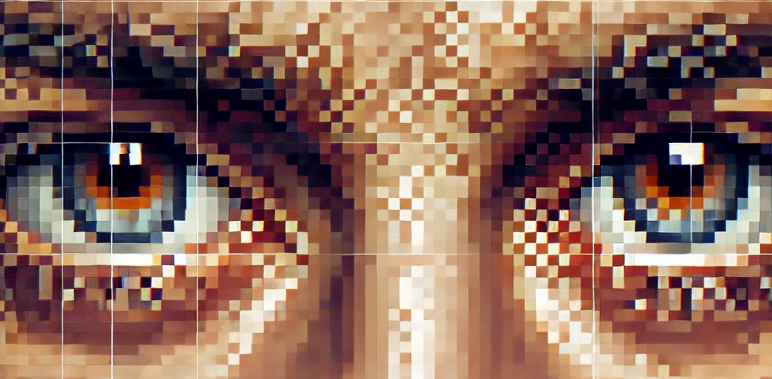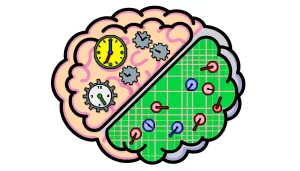
What Your Eyes Reveal About You
Unlocking Personality Traits Through Eye Movements
When was the last time you wondered what your eyes say about you? Most of us think of our eyes as simple tools for seeing the world, but what if they could also provide a window into our very personalities? Imagine if a quick glance, a lingering look, or even a brief blink could reveal whether you’re a natural leader or someone who prefers to blend into the crowd. It sounds like science fiction, but recent research is turning this concept into reality. Welcome to the world where machine learning meets human personality, and your gaze becomes the key to unlocking your innermost traits.
The Science Behind the Stare
The idea that our eyes could reveal more than what we’re looking at isn’t entirely new. For centuries, poets and philosophers have waxed poetic about the “windows to the soul.” But today’s scientists have taken this metaphor to new heights, using eye-tracking technology to decode our personality traits. What started as a niche area of study in highly controlled lab environments has now moved into the real world, providing us with fascinating insights into who we are based on where, and how, we look.
Recently, researchers equipped a group of adolescents with head-mounted eye trackers and observed their eye movements as they explored an interactive museum. Their goal was simple yet ambitious: to predict personality traits like extraversion, conscientiousness, and even Machiavellianism (a personality trait associated with manipulation and a cynical view of human nature) using machine learning algorithms. The results? They found that these algorithms could predict some personality traits with above-chance accuracy. That’s right—just by tracking eye movements, scientists could glean insights into who these adolescents were, beyond what they could consciously articulate about themselves.
Why Eye Movements Matter
You might be wondering, why are eye movements so telling? The answer lies in the intricate link between our brains and our eyes. Our visual system is closely tied to various neural processes that govern our thoughts, feelings, and behaviors. When you look at something, whether it’s a person, an object, or a scene, your eyes don’t just capture an image; they reflect your underlying motivations, preferences, and even your emotional state.
For instance, if you’re an extraverted person, you might be more inclined to make quick, exploratory glances around a crowded room, engaging with multiple people and objects. In contrast, a more introverted individual might focus their gaze on one or two specific items or faces, showing a preference for deep, focused interactions over wide-ranging social engagement.
Machiavellianism, one of the so-called “Dark Triad” traits that also include narcissism and psychopathy, was particularly well-predicted by the algorithms in this study. Individuals with high levels of Machiavellianism tended to exhibit a controlled, deliberate gaze, possibly reflecting their calculated and manipulative social strategies. On the other hand, traits like conscientiousness and narcissism proved harder to predict, suggesting that these might require more specific contexts or tasks to fully emerge through eye-tracking data.
How Machine Learning Steps In
The real magic happens when machine learning enters the scene. In this study, researchers used eight different machine learning algorithms to analyze the eye movement data. These algorithms included well-known methods like Random Forest, Naive Bayes, and Support Vector Machines, each with its strengths in detecting patterns in complex data. While the overall prediction accuracy ranged from 34% to 48%—not earth-shattering, but certainly significant—certain traits like extraversion and Machiavellianism were consistently predicted with higher accuracy.
This might seem modest compared to the near-perfect predictions we see in some lab-based studies, but the real-world context of this research makes it incredibly valuable. After all, our personalities don’t just show up in controlled lab settings; they manifest in how we interact with the world around us. By studying eye movements in a natural environment, like a museum, researchers are getting closer to understanding how our personalities influence our behavior in the real world, where unpredictability and variability reign.
The Real-World Impact
So, why does this research matter? Beyond the sheer novelty of predicting personality traits from eye movements, there are profound implications for fields ranging from education to mental health, and even to hiring practices. Imagine a world where educators could tailor their teaching methods based on a quick eye-tracking assessment of students’ personalities, helping introverted students engage more deeply or extraverted students channel their social energy productively.
In the workplace, such insights could revolutionize how we understand team dynamics. An employee’s gaze patterns during a meeting could reveal whether they are likely to take charge or prefer to observe and contribute more thoughtfully later. Understanding these subtle cues could help managers build more cohesive and effective teams.
Moreover, in clinical settings, eye-tracking could become a non-invasive tool for assessing personality traits that are difficult to measure through self-reporting. This could lead to more personalized mental health interventions, where therapy is tailored not just to what patients say, but to how they interact with their environment on a fundamental level.
Join the Conversation
As fascinating as this research is, it also raises important questions about privacy and the ethical use of such technology. If your eyes can reveal so much about you, who should have access to that information? How can we ensure that these insights are used responsibly and for the benefit of individuals and society as a whole?
- Would you feel comfortable with your eye movements being analyzed to predict your personality traits? Why or why not?
- How do you think this technology could be used (or misused) in everyday life?
Unlock Science Secrets:
Discover revolutionary research and innovative discoveries with ‘This Week in Science’! Designed for educators and science lovers, our free weekly newsletter offers insights that can transform your approach to science. Sign up now and deepen your understanding and passion for science. If you liked this blog, please share it! Your referrals help This Week in Science reach new readers.



